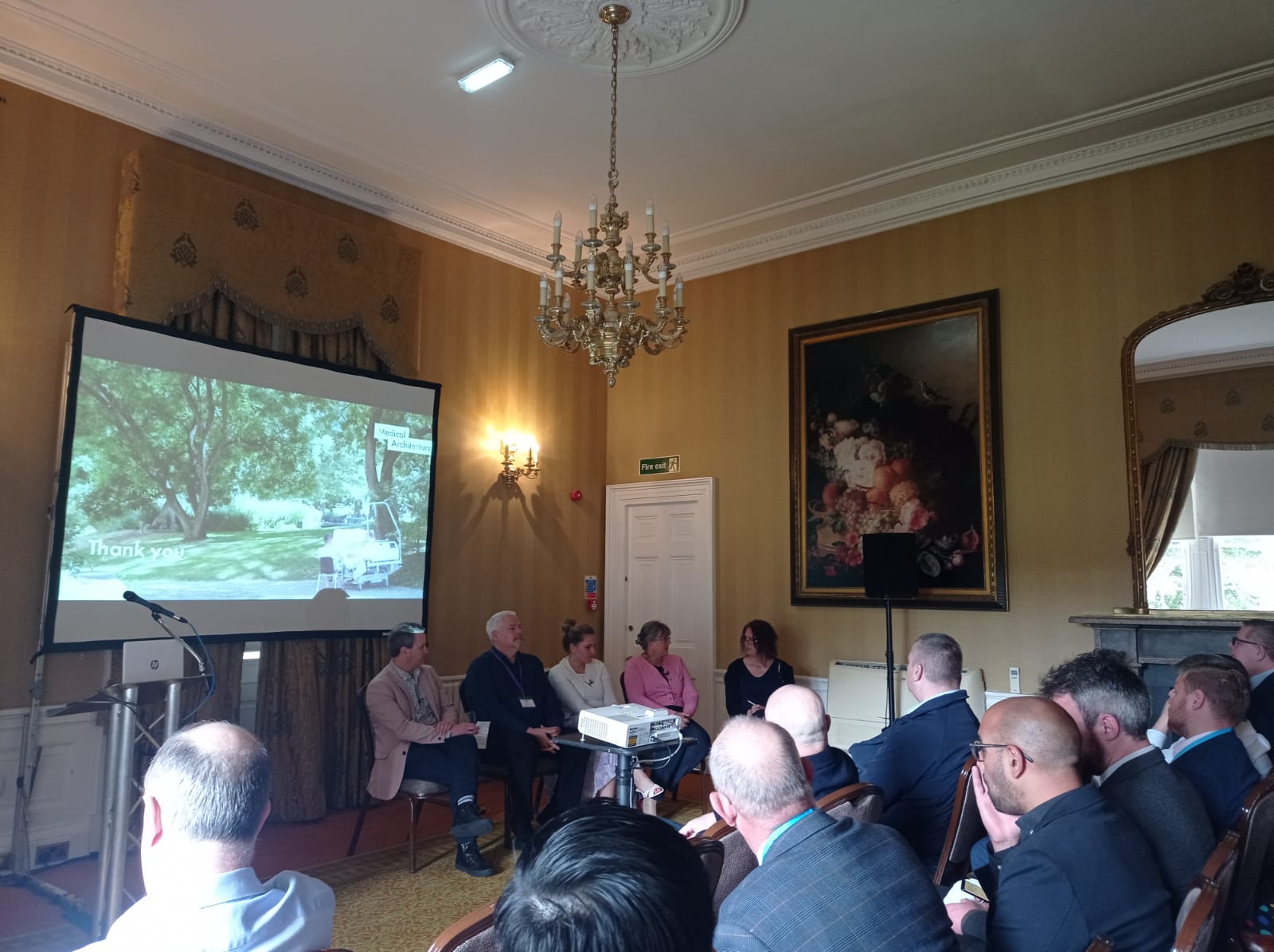
Delegates at this year's healthcare buildings forum Scotland heard from a number of industry-leading speakers offering an overview of the challenges and opportunities in the healthcare design and construction sector, including how the country is leading the way on the net-zero challenge
NHS Scotland has some of the most-ambitious net-zero carbon targets of the entire UK, and many overseas health systems, and this commitment is driving the design and operation of its estate.
And this new direction was at the centre of the speaker sessions at the 2022 healthcare buildings forum Scotland, held in Edinburgh last month.
The annual event, which returned to a face-to-face format following the lifting of COVID-19 restrictions, provided a crucial opportunity for healthcare product and service suppliers to meet key decision-makers involved in the design and development of health and social care facilities across the country.
Over the one-and-a-half days of meetings and networking opportunities, three speaker sessions were held, where experts provided an overview of the opportunities and challenges facing the sector.
Blazing a trail
In 2019 NHS Scotland became the first national health service in the UK to commit to becoming a net-zero organisation.
But, like all sectors of society, this means accelerating efforts to cut greenhouse gas emissions and become environmentally sustainable. And this led to the Scottish Government bringing forward its target date for achieving net-zero emissions from 2045 to 2040.
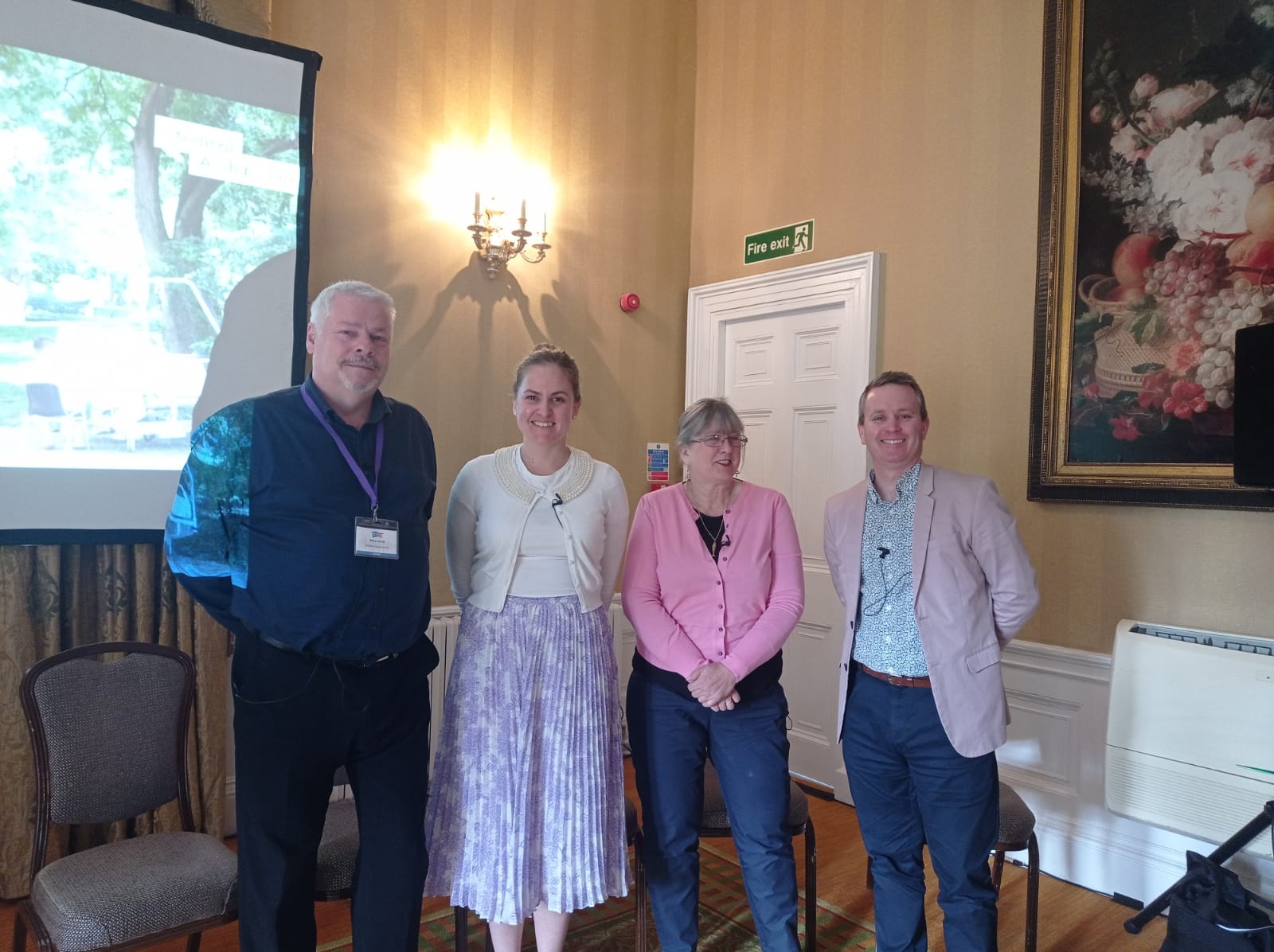
Commenting on what this will mean for the NHS estate, several of the speakers called for greater use of standardisation and modern methods of construction (MMC), as well as a deeper understanding of the various low-energy technologies now flooding the marketplace.
Alan Morrison, deputy director of health infrastructure at the Scottish Government, told delegates at the conference that it was about ‘quality and getting things right’.
“Everything has to be seen through the net-zero lens and we need to ask how we can adapt our infrastructure to be net zero” he said.
“If we are building something new than it needs to be net zero from the start.”
But, he added, existing infrastructure remained a challenge, with the Scottish NHS estate facing a backlog maintenance bill of over £1bn.
“We do not have the luxury of just ripping out electrics and putting in new systems,” he said.
“We have hospitals operating at 95% capacity and we can’t just take beds out.
“COVID-19 has shown us that we can build facilities quickly, but it’s about ensuring the buildings are the quality we expect; and that takes time.”
An evidence-based approach
And he revealed that the COVID-19 pandemic was continuing to impact on supply chains.
He told the audience: “We are seeing problems with supply chains right across the system.
“We were told air handling units would take 16 weeks to be delivered. Now it’s 40 weeks.
COVID-19 has shown us that we can build facilities quickly, but it’s about ensuring the buildings are the quality we expect; and that takes time
“MRI scanners are taking over a year to be delivered and this isn’t going to go away.
“In addition, one hospital we built cost £5,000 per sq m. A more-recent project has cost £10,000 per sq m and that does not seem to be abating.
“It is now time to put out our framework strategy and to articulate what we can do in health and how we can invest in Scotland and its communities in the future.”
Dr Steve Scott, head of the technical unit for building standards in the Scottish Government’s standards division, added: “We have a lot of work to do, and we need a more evidence-based approach to building that supports compliance.
“We are looking at fairly-challenging targets where we will have no combustion appliances installed in new buildings and we will not be burning fossil fuels on site.
“Each time we review energy standards we are driving improvements and delivering change, and significant work is going on around the decarbonisation agenda and we will need a change of approach for this to be successful.”
He took delegates through a number of changes proposed across Scotland, including a review of energy and heating standards and changes to fire safety legislation, particularly around cladding following the Grenfell Tower tragedy.
Quality and control
But Morrison said the Government, and the NHS, would need to take a more-long-term approach to estates improvements, with a five-year settlement expected to be announced later this year.
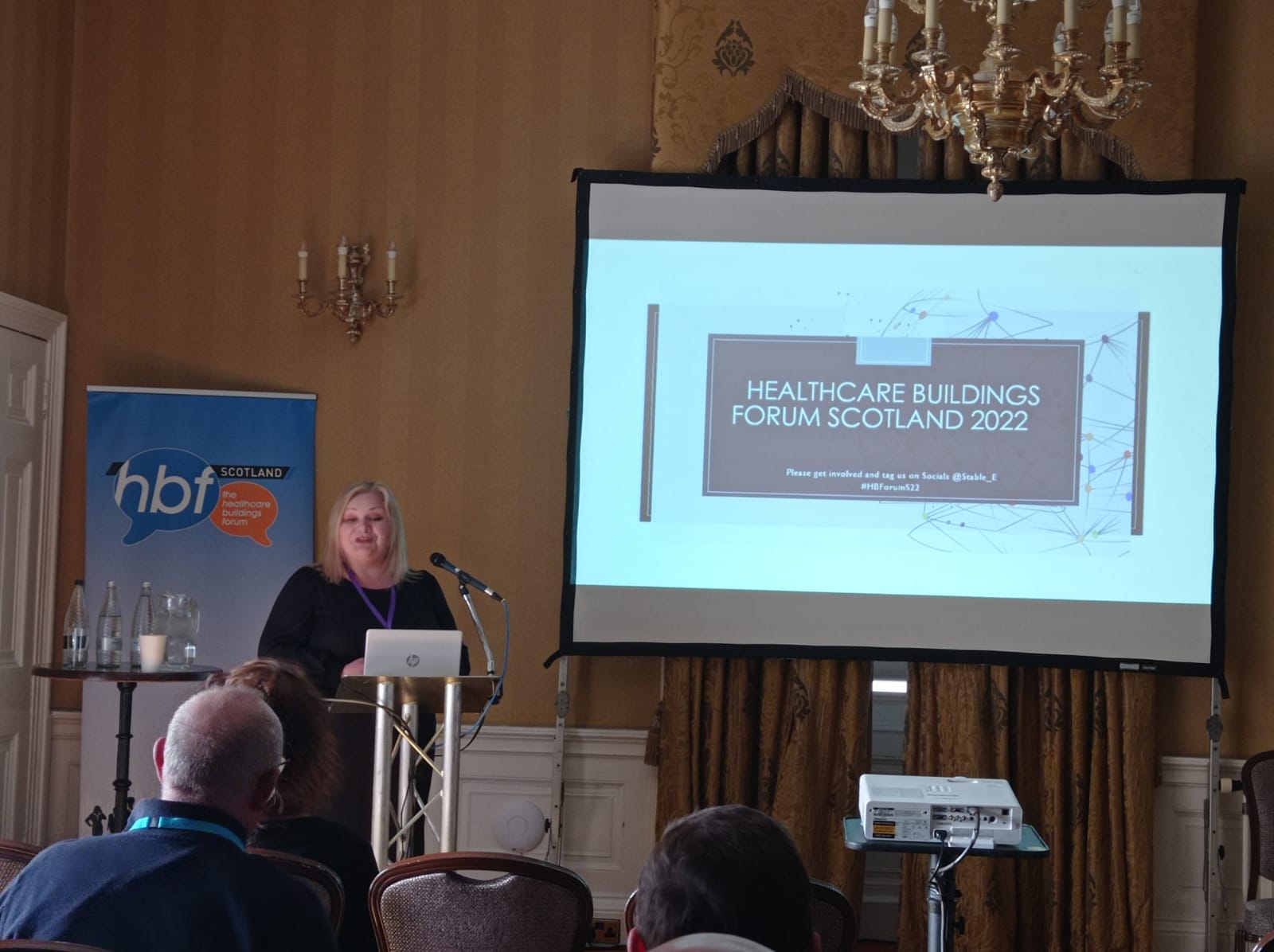
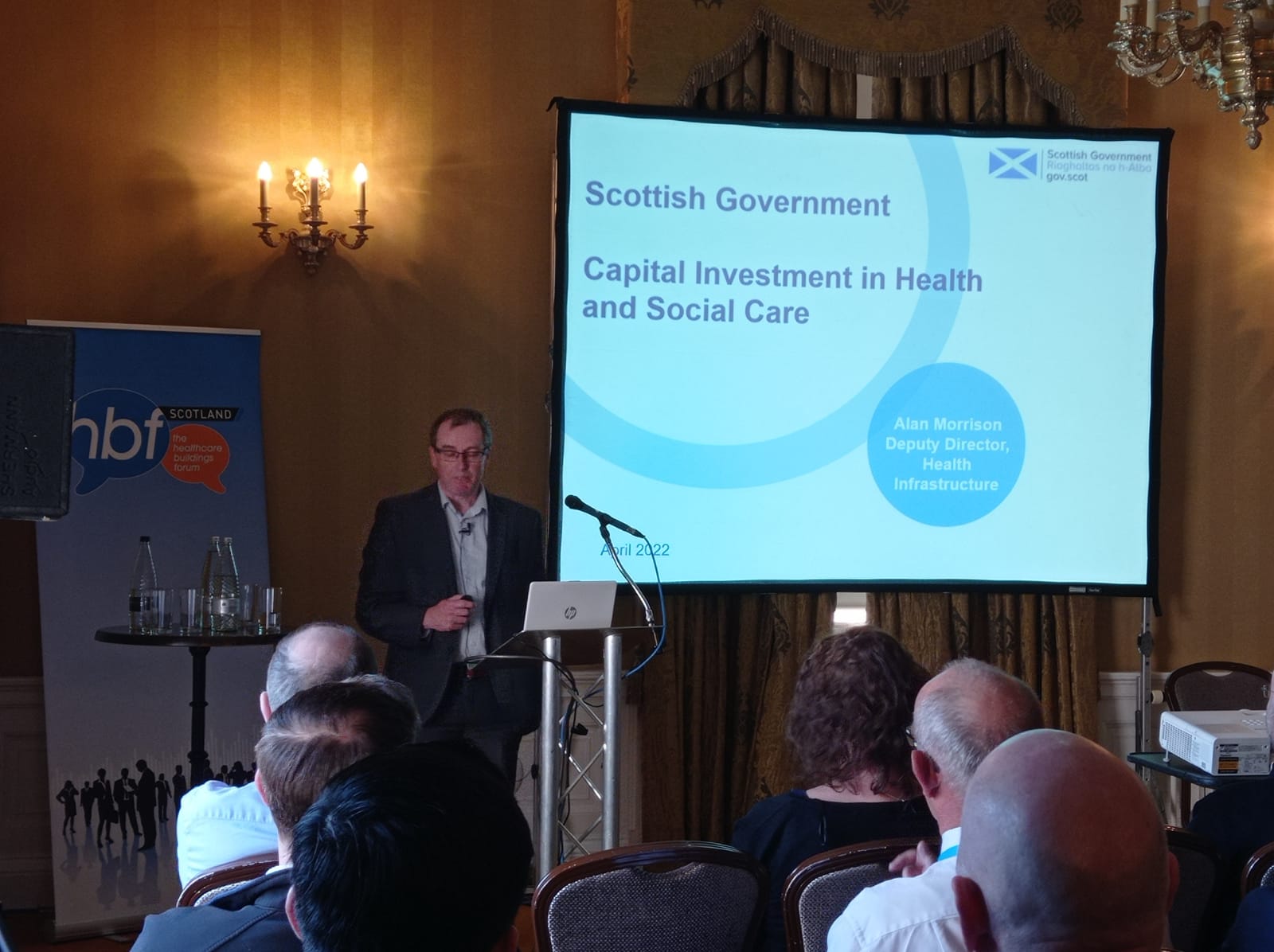
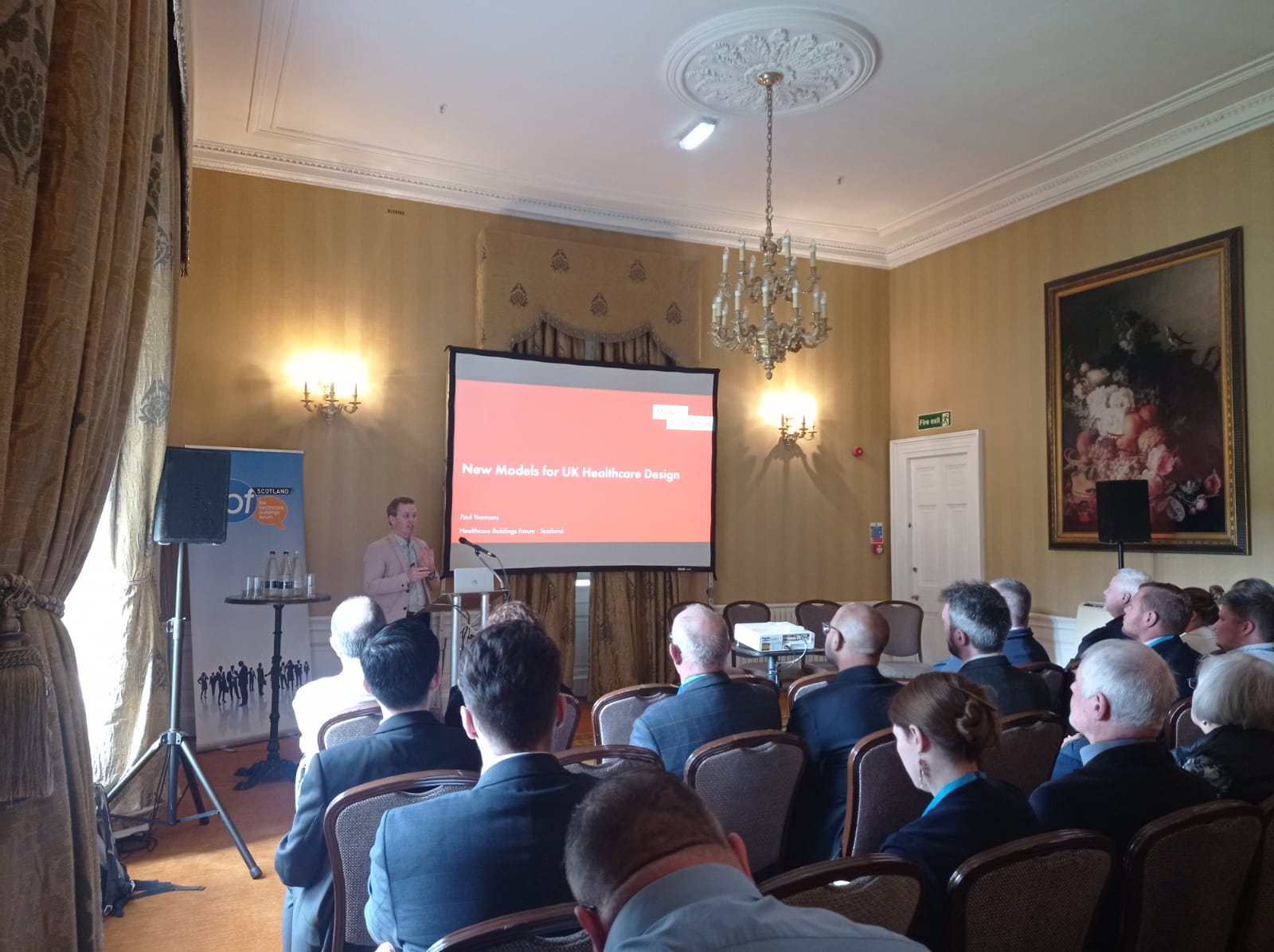
And he called for improvements in quality and control throughout any design and construction project after it was revealed that delays to the opening of the Royal Hospital for Sick Children in Edinburgh were due to errors entered onto a spreadsheet.
“Someone might have put in that four air changes an hour were needed instead of 10,” he told delegates.
“This resulted in the error not being noticed until an independent tester saw it.
“It blows my mind that something of this magnitude can be traced back to that.
“We need to factor in quality checks and make sure we tick every box.”
Sharing learnings
Also speaking at the conference were Meischa Wade and Rachel Hall, healthcare planners at multi-disciplinary consultancy, ETL, who provided an overview of NHS England’s New Hospitals Programme, which is expected to have a widespread impact on how future healthcare facilities are designed across the UK.
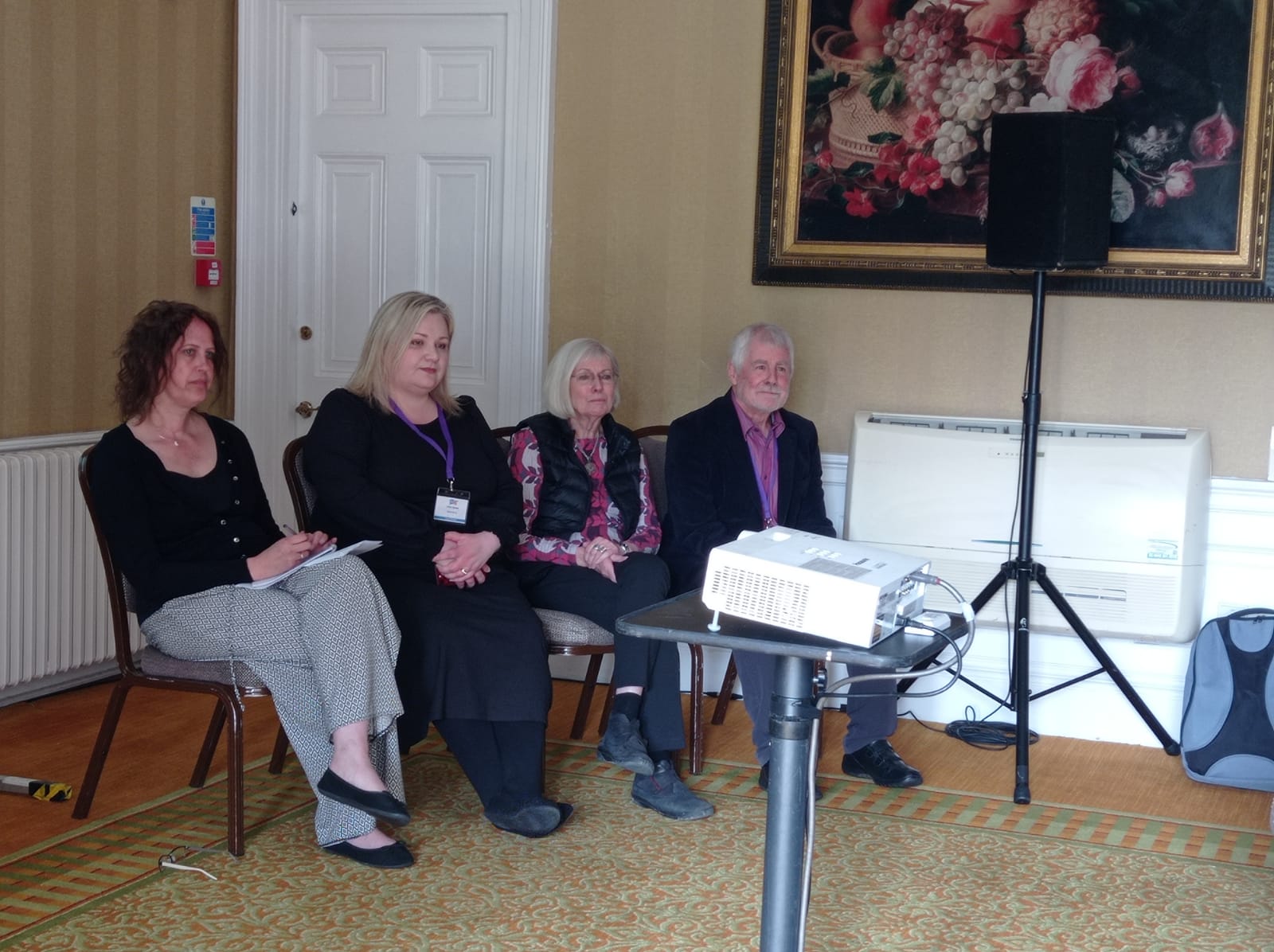
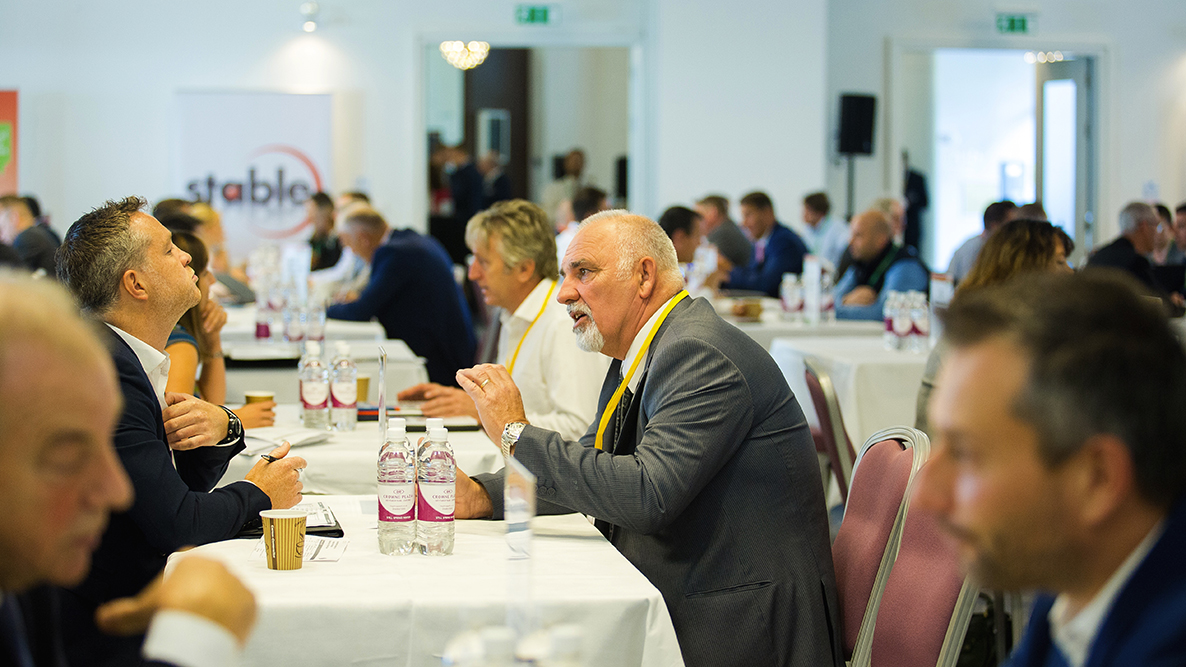
Sharing learnings from two of the eight pathfinder new-build projects, they provided an overview of the programme and some of the issues being caused by delays in the sign off of business cases.
There is planned investment in healthcare buildings across Scotland, England and Wales and the opportunity is there for change
The patient environment also came under the microscope, with several of the speakers focusing on how new and existing infrastructure can be developed to enhance the lives of patients, staff, and visitors.
Shaping the future
Paul Yeomans, director at Medical Architecture, said: “There is planned investment in healthcare buildings across Scotland, England and Wales and the opportunity is there for change.”
In particular, he noted the growing need for investment in mental health services, providing a case study of Medical Architecture’s Hopewood Park Hospital in Sunderland, and looking at how key trends will shape the future of healthcare infrastructure.
The synergy between the design of mental health settings and custodial facilities was further explored by Claire Rosset, associate architect at BakerHicks and a member of the design team for the HMP Highland facility.
She said: “A radical departure from traditional prison design, HMP Highland is the first new prison in the Scottish Highlands for more than a century.
“Visually and aesthetically appealing, it combines innovative design with the practical, operational needs of a prison.
Inclusive design is vital and it needs to be aimed at as many people as possible, regardless of age, gender, or disability. An awful lot of buildings are not inclusive
“Right from inception through to its current stage, its forward-thinking design ethos focuses on rehabilitation and creating a community facing facility that will help transform the lives of those who live there.
Mitigating through design
“It is an example of designing an environment to not only impact how a facility is used, but the lives of those that use it, and can easily be used as a template for healthcare infrastructure moving forward.”
And Annie Pollock, secretary of the Edinburgh Access Panel and a consultant to bpa-Architecture on inclusive design, told the audience about the important of air quality and acoustics on patient wellbeing and recovery.
She said: “Inclusive design is vital and it needs to be aimed at as many people as possible, regardless of age, gender, or disability. An awful lot of buildings are not inclusive.
“Air pollution, in particular, is the biggest single environmental threat to health in the UK and we need to mitigate things as far as we can through design.”
Commenting on the event, supplier delegate, Ramzi Bahashwan of Eurocell, said: “The event was excellent, as always.
“It gave me an opportunity to network with a variety of clients and promote the company.
“I generated a number of leads to follow up on after the event.”